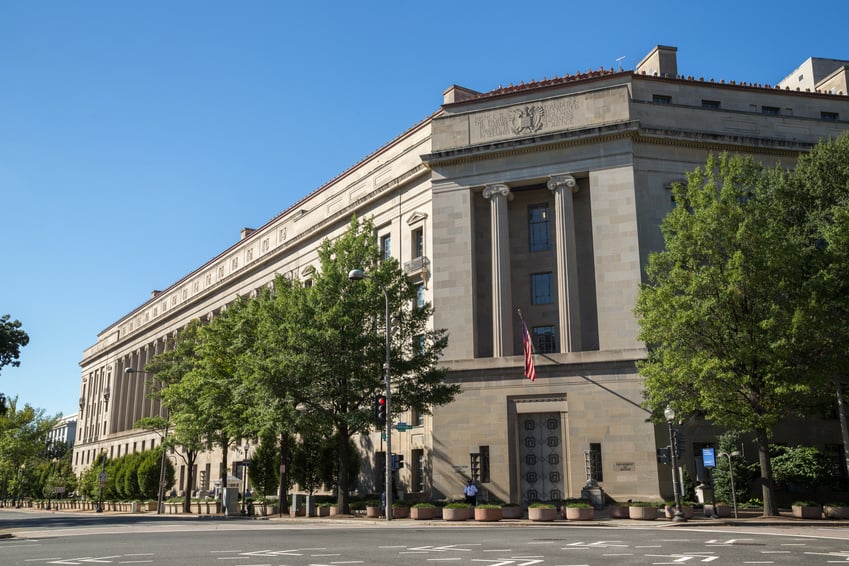Prosecutors in the U.S. have a longstanding practice of utilizing conspiracy charges to expand the scope and jurisdictional reach of the Foreign Corrupt Practices Act (FCPA), particularly with respect to its anti-bribery provisions. While aspects of this practice have been subject to recent court scrutiny,1 this article discusses how conspiracy charges continue to assist the government in overcoming the myriad legal obstacles to establishing a substantive FCPA violation.
What is Conspiracy?
Under U.S. federal law, a criminal conspiracy occurs when two or more people (or entities) form an agreement to commit a specified offense, and one of the conspirators takes some overt action in furtherance of the criminal agreement.2 Once a conspiracy is established, each conspirator may be liable for the foreseeable acts of the co-conspirators committed in furtherance of the conspiracy.3 In the U.S., conspiracy is an inchoate (or incomplete) offense, meaning that a conspiracy charge can be brought regardless of whether or not the substantive offense was ever completed. Conspiracy charges can also be brought in addition to charges for the substantive offense underlying the conspiracy. The two offenses do not merge upon completion of the substantive offense. For example, a defendant can be charged and found guilty of violating the FCPA and also conspiring to violate the FCPA.4
Why are Conspiracy Charges Common in FCPA Cases?
Many recent FCPA prosecutions and corporate resolutions have been predicated on charges of conspiracy. There are a number of key reasons why a conspiracy charge may be pursued by prosecutors in an FCPA matter instead of, or in addition to, one or more substantive charges.
To Recognize Cooperation
Because most FCPA resolutions are typically negotiated in confidentiality and are lacking in detail when the settlement terms are ultimately disclosed, it is difficult to ascertain why a conspiracy charge was brought in lieu of (or in addition to) a substantive FCPA charge–or whether the facts revealed by the investigation were indeed sufficient to establish a substantive charge. Based on publicly available information relating to FCPA resolutions, however, we know that some companies and individuals have been charged solely with conspiracy, rather than substantive FCPA violations, as recognition for cooperation with the government in both the investigation and resolution of the matter. Of course, a resolution involving a single conspiracy offense is generally preferable to multiple, additional substantive charges reflective of broader conduct in form, if not in substance.
To Augment Overall FCPA Charges
As discussed above, U.S. prosecutors may bring a conspiracy charge in addition to one or more substantive FCPA charges. Because many bribery schemes involve some form of an agreement between multiple parties, by including conspiracy charges, prosecutors may leverage their ability to enlarge the number of counts for purposes of negotiating a resolution or charging a case for trial.
To Overcome Jurisdictional Issues
In general, the FCPA applies to the following: (1) a U.S. domestic concern or issuer of securities, or any officer, director, employee, or agent thereof (regardless of their nationality); (2) a U.S. citizen outside of the U.S.; and (3) any other person, while in the territory of the U.S. During the past several years, U.S. authorities have prosecuted a number of foreign corporations for bribing non-U.S. public officials. Yet, despite the expansive extraterritorial reach of the FCPA, there are many instances where prosecutors face challenges in establishing the necessary jurisdictional nexus between a potential foreign defendant and illicit activity in the U.S. to bring a substantive FCPA charge. This is another area where conspiracy can be a particularly effective tool for prosecutors. The government has long argued that an FCPA conspiracy charge can be brought against a foreign company or an individual with no nexus to the U.S. if they conspired in a bribery scheme with someone who did have sufficient connections to the U.S. to establish jurisdiction. This theory was recently challenged in U.S. v. Hoskins, where the defendant, Lawrence Hoskins, argued successfully that he was not subject to conspiracy jurisdiction because he could not be subject to a substantive FCPA charge.5 Hoskins emphasized that “Congress deliberately intended to exclude [non-resident foreign nationals] from the statute’s reach so long as they did not act while in the territory of the United States (Section 78dd-3) and did not fall into an enumerated class of persons with threshold ties to a U.S. securities issuer (Section 78dd-1) or U.S. domestic concern (Section 78dd-2).”6 The district court held in favor of Hoskins on this point, basing its conclusion on the decision of the U.S. Supreme Court in U.S. v. Gebardi,7 which stands for the principle that, where Congress passes a substantive criminal statute excluding a certain class of individuals from liability, the government cannot override congressional intent by charging those individuals with conspiring to violate the same statute.8 The decision in Hoskins may result in a more limited use of conspiracy charges by the government to extend the jurisdictional reach of the FCPA (subject to the government’s appeal of the decision). The ultimate impact of the case, however, could be limited, given the already-broad jurisdictional reach of the FCPA and the various other ways in which the government may employ conspiracy charges. For example, Hoskins may still face substantive FCPA anti-bribery and conspiracy charges based on the theory that he was an agent of a U.S. company.9
To Address Statute of Limitations Concerns
The five-year statute of limitations for substantive FCPA offenses10 requires that substantive FCPA anti-bribery charges must be filed within five years of the activity fulfilling the relevant elements of the bribery offense. Conspiracy, on the other hand, is considered a continuing offense. The effect of this distinguishing factor is that, for conspiracy charges, the government need only prove that one act in furtherance of the conspiracy occurred within the limitations period. The statute then commences on the date of that last overt act. For this reason, charges for conspiracy can often be brought long after the statute of limitations has run on the underlying, substantive bribery offense. The DOJ has recognized obstacles presented by the statute of limitations in bringing complex corporate criminal cases in parallel with the prosecution of individual defendants. The recent Yates Memo,11 for example, encourages U.S. prosecutors to pursue cases against individuals concurrently with associated companies and to finalize corporate criminal cases within the limitations period (with minimal recourse to tolling agreements) so as not to preclude or time-bar potential charges against linked individuals. It remains to be seen whether prosecutors will, in fact, now be able to resolve FCPA cases in a more expeditious fashion and reduce their current reliance on tolling agreements and conspiracy charges to extend the time with which they have to investigate such complex matters.
To Counter Evidentiary Issues in Establishing all Elements of a Bribery Offense
To bring an FCPA conspiracy charge, a prosecutor need not prove all of the elements of the underlying bribery offense; rather, the prosecutor need only demonstrate that there was an agreement to do something that would constitute a violation of the FCPA, and then some overt act in furtherance of the conspiracy. For example, it is often difficult to follow, conclusively, the money in a bribery scheme to its ultimate public official recipient. Where there are such evidentiary gaps, a prosecutor may prefer to bring a conspiracy charge rather than take his or her chances with a more attenuated, substantive FCPA charge.
When One or More Relevant Acts are Committed by Someone Other than the Defendant
Prosecutors in a conspiracy case do not have to demonstrate that each of the involved individuals or entities undertook, or planned to undertake, the actions required to meet the elements of a bribery offense under the FCPA. If any member of a criminal conspiracy commits at least one overt act in furtherance of the conspiracy, then all of the members of the conspiracy are considered to have committed the crime–“the hand of one is the hand of all to the conspiracy.”12
Conclusion
In recent years the U.S. government has demonstrated a commitment to rigorous and expansive enforcement of the FCPA, against both corporate and individual defendants, whether located in the U.S. or abroad. The use of conspiracy charges is one of many tools the government has at its disposal to fulfill this objective. This tool is particularly effective and will likely continue to be used proactively against defendants who might otherwise consider themselves beyond the reach of the FCPA or who might entertain the possibility of challenging the government at trial.
1 See infra notes 5-9 and accompanying text. 2 See 18 U.S.C. §371. 3 U.S. v. Pinkerton, 328 U.S. 640, 647-48 (1946). 4 The U.S. Department of Justice and the Securities and Exchange Commission explain their policy for using conspiracy in FCPA matters as follows (in their joint 2012 Resource Guide to the FCPA): “Individuals and companies, including foreign nationals and companies, may also be liable for conspiring to violate the FCPA–i.e., for agreeing to commit an FCPA violation–even if they are not, or could not be, independently charged with a substantive FCPA violation.” A Resource Guide to the U.S. Foreign Corrupt Practices Act (2012) at 34, available at http://www.justice.gov/sites/default/files/criminal-fraud/ legacy/2015/01/16/guide.pdf. 5 See U.S. v. Hoskins, No. 3:12cr238 (JBA), at 6, 20 (D. Conn. Aug. 13, 2015) (Order Ruling on Defendant’s Second Motion to Dismiss the Indictment), available athttps://ecf.ctd.uscourts.gov/cgi-bin/show_public_doc?2012cr0238-270. 6 Id. at 6. 7 U.S. v. Gebardi, 287 U.S. 112 (1932). 8 See id. at 119-23; see also Hoskins, supra note 5, at 8. 9 “If the Government proceeds under the theory that Mr. Hoskins is an agent of a domestic concern and thus subject to direct liability under the FCPA,” the “Gebardi principle would not preclude his criminal liability for conspiring to violate the FCPA.” Hoskins, supra note 5, at 20 (emphasis added). 10 18 U.S.C. §3282(a). 11 See Dep’t of Justice memorandum regarding individual accountability for corporate wrongdoing (Sept. 9, 2015) (issued by U.S. Deputy Attorney General Sally Quillian Yates), available athttp://www.justice.gov/dag/file/769036/download. 12 U.S. v. Pinkerton, supra note 3, at 647-48 (explaining this doctrine in detail, which is often summarized and/or quoted as in the text above by U.S. federal judges in jury instructions). Reproduced with permission from Corporate Counsel Weekly Newsletter, 31 CCW 56, 02/17/2016. Copyright 2016 by The Bureau of National Affairs, Inc. (800-372-1033) http://www.bna.com



